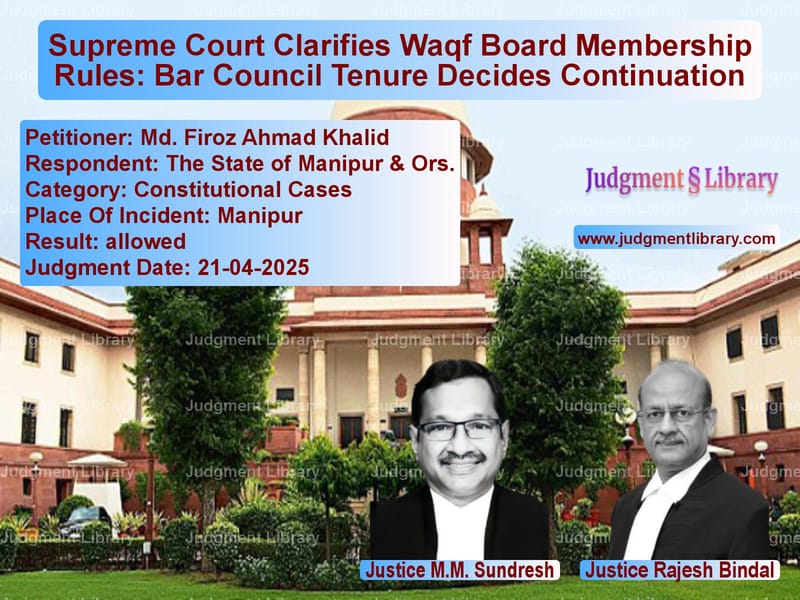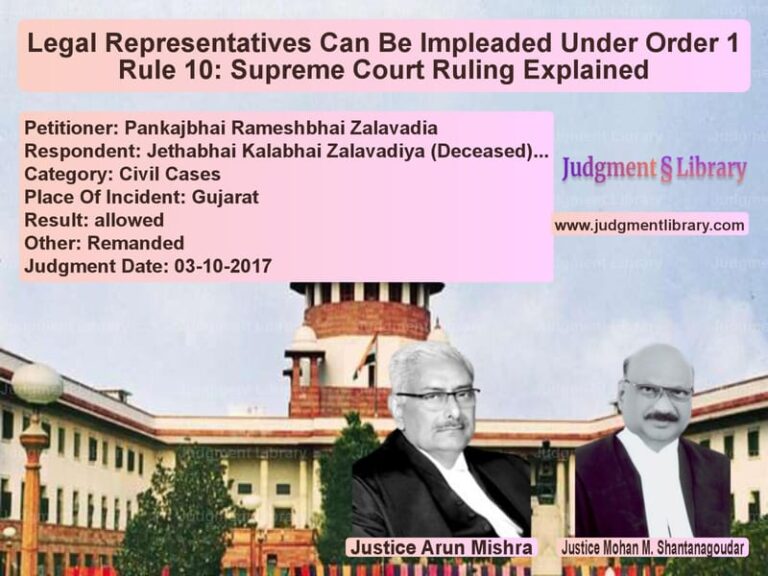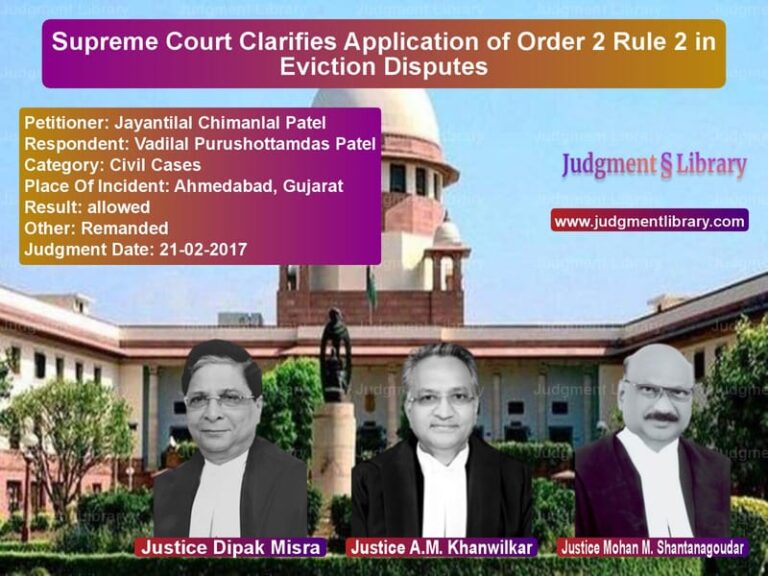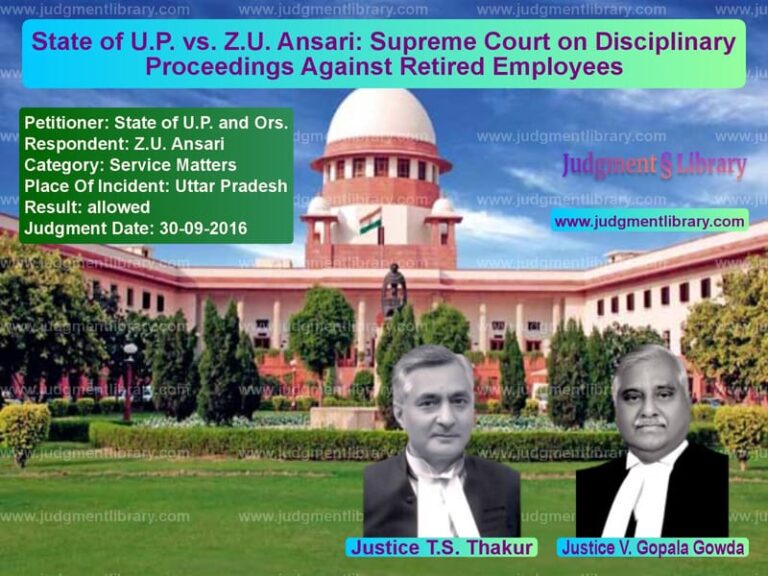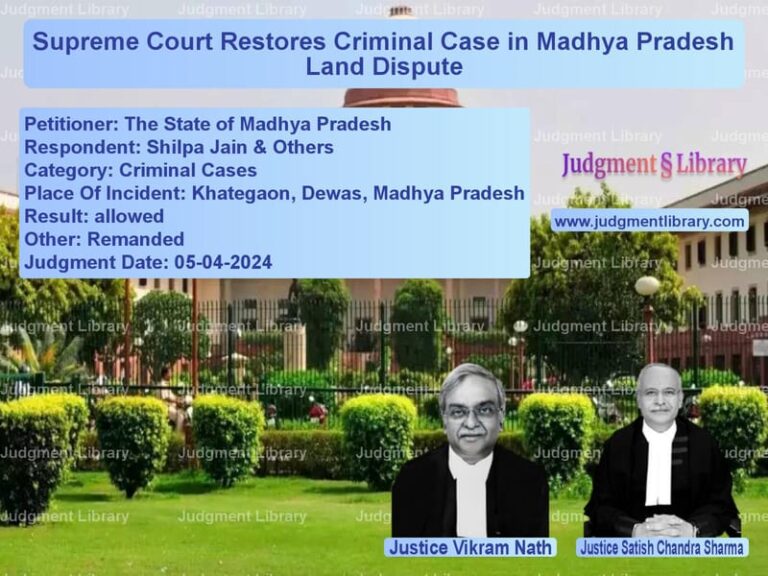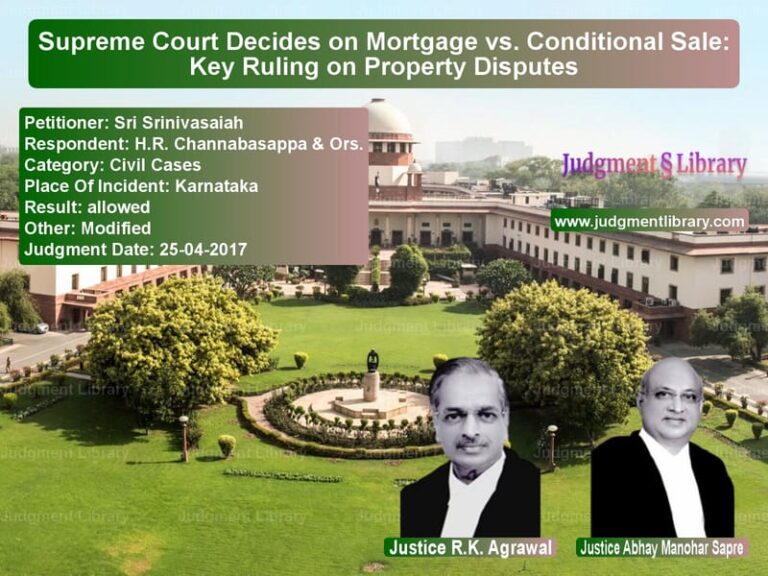Supreme Court Clarifies Waqf Board Membership Rules: Bar Council Tenure Decides Continuation
The Supreme Court of India recently delivered a landmark judgment in the case of Md. Firoz Ahmad Khalid vs. The State of Manipur & Ors., settling an important question regarding the tenure of members in Waqf Boards constituted under the Wakf Act, 1995. The judgment, delivered by Justices M.M. Sundresh and Rajesh Bindal, provides crucial clarity on whether a Muslim member of the Bar Council elected to a Waqf Board can continue in position after their Bar Council tenure ends.
The dispute centered around Section 14 of the Wakf Act, 1995, which governs the composition of Waqf Boards. The specific question before the Court was whether Explanation II to Section 14(1)(b) of the Act, which states that a member ceases to be part of the Waqf Board if they are no longer a Member of Parliament or State Legislative Assembly, should also apply to Muslim members of the Bar Council serving on the Board.
The appellant’s counsel argued that “Section 14 of the 1995 Act, is clear and unambiguous… The interpretation as rendered by the Division Bench of the High Court… would militate against the very legislative intent of the substantial part of the provision.” They contended that membership in the Bar Council was the fundamental qualification for serving on the Waqf Board, and this position should automatically terminate when the Bar Council membership ends.
Respondent No. 3’s counsel countered this argument by relying on the legal maxim “expressio unius est exclusio alterius” (the express mention of one thing excludes others), submitting that “there is a conscious omission on the part of the Legislature to the effect that a Member of the Bar Council is excluded from the purview of Explanation II.”
The Supreme Court, in its detailed analysis, emphasized that “to interpret a legislative provision, what must be primarily considered is its substantive part. An explanation simply performs a clarifying function.” The Court noted that “the words ‘for the removal of doubts’ in Explanation II to Section 14(1)(b) of the 1995 Act, throw light on the clarificatory nature of the said Explanation.”
The judgment provided a comprehensive interpretation of Section 14, stating that “the eligibility of persons under the categories listed in Section 14(b)(i), 14(b)(ii), and 14(b)(iii) of the 1995 Act, hinges on their membership in either the Parliament, or the State Legislative Assembly, or the Bar Council respectively. Without such membership… the very basis for their membership in the Board ceases to exist.”
The Court rejected the application of the expressio unius maxim in this case, observing that “the aforesaid maxim is not one of universal and absolute application… applying the same would render an interpretation contrary to the intent of the provision, resulting in an unreasonable and unjust classification.”
In its concluding remarks, the Supreme Court set aside the High Court’s judgment and restored the Single Judge’s decision, holding that “the term of a Member of the Bar Council serving on the Board, is co-terminus with their membership in the Bar Council itself.” The Court allowed the appeals, thereby clarifying that Waqf Board membership for Bar Council representatives automatically ends when their Bar Council tenure concludes.
Petitioner Name: Md. Firoz Ahmad Khalid.Respondent Name: The State of Manipur & Ors..Judgment By: Justice M.M. Sundresh, Justice Rajesh Bindal.Place Of Incident: Manipur.Judgment Date: 21-04-2025.Result: allowed.
Don’t miss out on the full details! Download the complete judgment in PDF format below and gain valuable insights instantly!
Download Judgment: md.-firoz-ahmad-khal-vs-the-state-of-manipur-supreme-court-of-india-judgment-dated-21-04-2025.pdf
Directly Download Judgment: Directly download this Judgment
See all petitions in Fundamental Rights
See all petitions in Constitution Interpretation
See all petitions in Legislative Powers
See all petitions in Public Interest Litigation
See all petitions in Muslim Personal Law
See all petitions in Judgment by M.M. Sundresh
See all petitions in Judgment by Rajesh Bindal
See all petitions in allowed
See all petitions in supreme court of India judgments April 2025
See all petitions in 2025 judgments
See all posts in Constitutional Cases Category
See all allowed petitions in Constitutional Cases Category
See all Dismissed petitions in Constitutional Cases Category
See all partially allowed petitions in Constitutional Cases Category

